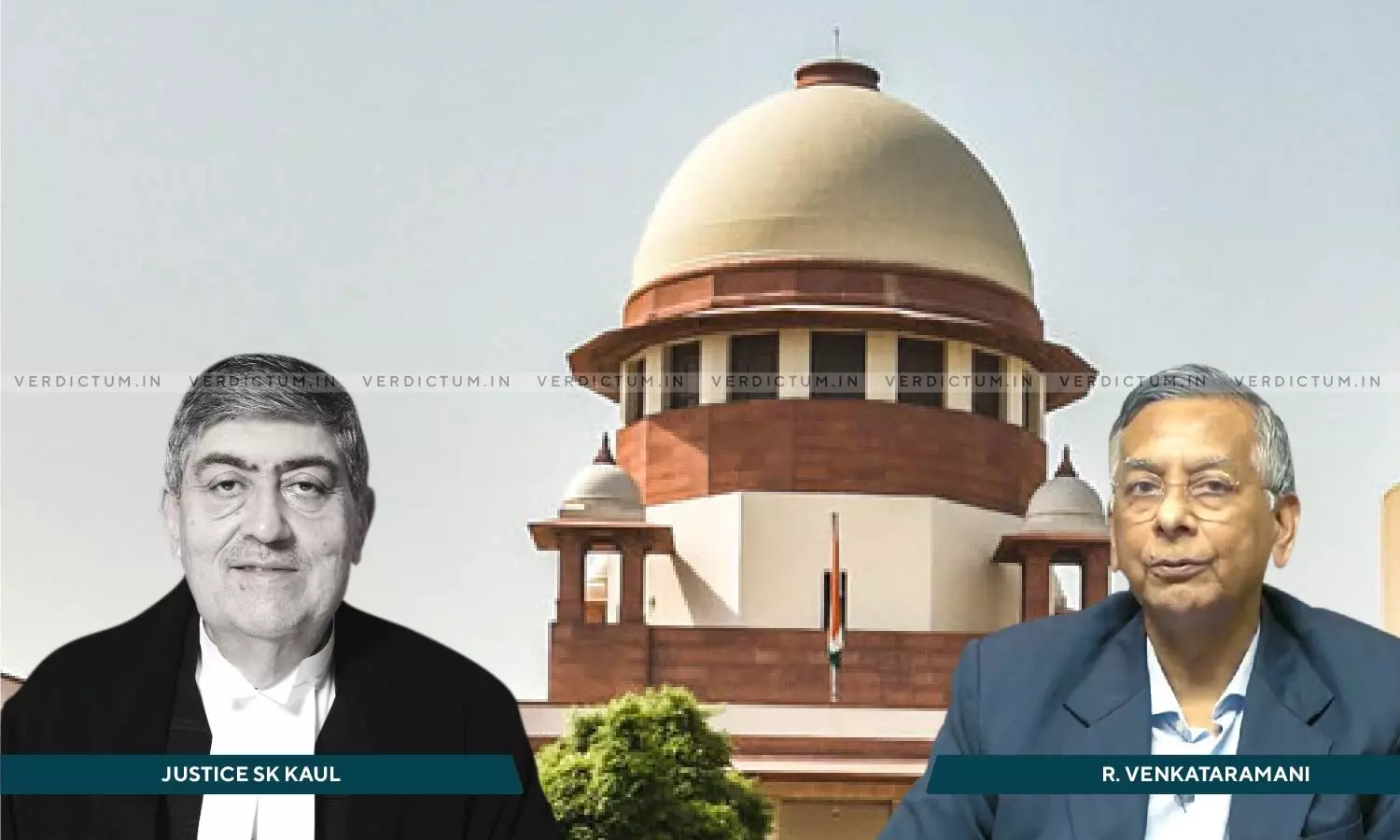
Farewell To Justice Kaul- AG Venkataramani Applauds Heartfelt Observations In Epilogue In Article 370 Judgment, Constitution Of Truth And Reconciliation Commission
 |
|The Supreme Court's ceremonial bench assembled today to bid adieu to Justice Sanjay Kishan Kaul on his last working day as the judge of the Supreme Court. In the valedictorian speeches addressing Justice Kaul, various senior members of the Bar commended his demeanour. Attorney General R. Venkatramini took the opportunity to thank Justice Kaul for his relentless support in the Article 370 case.
Pertinently, while the five-judge bench of the Apex Court upheld the Union government’s 2019 constitutional order revoking Article 370 as valid, Justice Kaul in his concurring opinion wrote an “epilogue” describing the scene and sufferings that he witnessed, as he belongs to the valley himself.
Today ceremonial bench was presided over by Chief Justice of India D.Y. Chandrachud and also comprised Justice J.B. Pardiwala and Justice Manoj Misra apart from Justice Kaul.
AGI R. Venkatramini while lauding Justice Kaul’s efforts, said, “…the Kashmir judgment marks the constitutional jurisprudence in more than one sense. Justice Kaul's expression that there should be a Truth Conciliation... I think it marks a watershed in the way the Court can articulate a profound thought about the healing that is required. I am sure that it came to him not only because he belongs to that part of the country with a long lineage of his family over a period of time, I think it correctly captured the essence of the time and that brought in a very important observation. And I am sure this observation will go a very very long way and catch the hearts of the people of Kashmir and the rest of the country to ensure that Truth Reconciliation is the only way to bring over peace in the crisis within times of our country. I am really thankful to Justice Kaul for making that observation”.
Solicitor General Tushar Mehta while agreeing with AGI further suggested to Justice Kaul that he should spend as much time with his grandchildren as possible. Furthermore, he congratulated him while wishing him luck for his future.
Justice Kaul in what he called an “epilogue” in the Judgment, narrated a brief history of the Kahmir valley, and the series of events that the residents have faced over the years. He said, “During my travels home over the years, I have observed the social fabric waning, and the consequences of intergenerational trauma on an already fractured society. I cannot help but feel anguish for what peoples of the region have experienced and am constrained to write this Epilogue”.
“In view of the in-roads made globally, and endogenous requests for truth and reconciliation, I recommend the setting up of an impartial truth and reconciliation commission (“Commission”). The Commission will investigate and report on the violation of human rights both by State and non-State actors perpetrated in Jammu & Kashmir at least since the 1980s and recommend measures for reconciliation”.
“…I am alive to the challenge that recommending the setting up of a truth and reconciliation is beyond the realm of this Court. However, I am of the view that transitional justice, and its constituents, are facets of transformative constitutionalism. Globally, constitutionalism has evolved to encompass responsibility of both state and non-state actors with respect to human-rights violations. This includes the duty to take reasonable steps to carry out investigations of violations. It is in this context that the proposed truth and reconciliation commission accords with constitutionalism”, he had observed further.
Justice Kaul had further cautioned that the Commission, once constituted, should not turn into a criminal court and instead follow a humanized and personalized process enabling people to share what they have been through uninhibitedly.